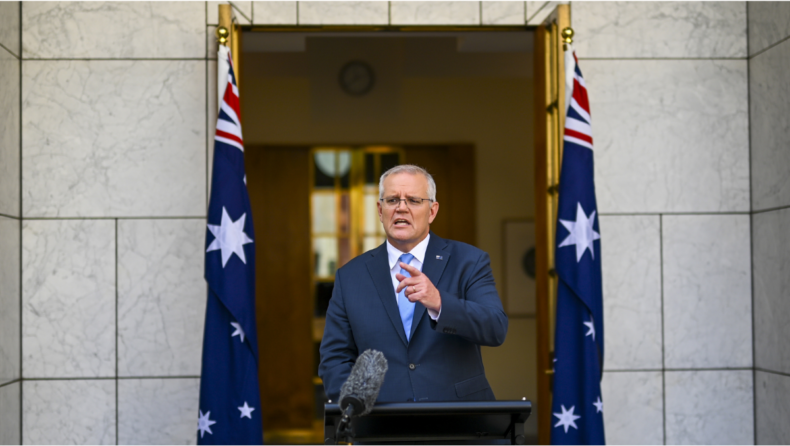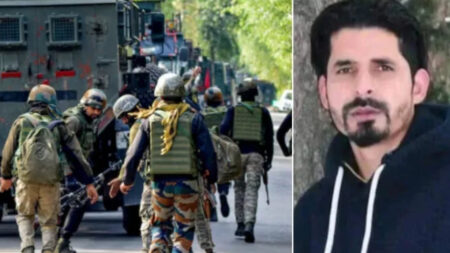Australia PM On Federal Election-On Sunday, Prime Minister Scott Morrison declared that Australia would hold a general election on May 21, beginning off a campaign that would likely center on worries about the cost of living, climate change, and concerns of integrity and competency among the main parties.
After nine years in office, opinion polls show Morrison’s conservative government lagging behind the opposition Labor Party. Like the previous election in May 2019, Morrison trailed in opinion surveys but won.
“I understand there’s still a lot of uncertainty ahead,” Morrison said to reporters in Canberra. “However, this election and campaign are very crucial.”
Since June 2021, opinion surveys have shown that the opposition Labor Party has been ahead of Morrison’s center-right government. In an editorial post before the election, Morrison said that the country has fared significantly better than others despite the many obstacles Australians have encountered since the previous election three years ago, including bushfires, floods, and the COVID-19 epidemic. “However, I am aware that our country continues to confront significant problems, and many families are struggling,” he remarked.
He urged people to support the administration that has resulted in one of the fewest pandemic fatalities of any advanced economy rather than the opposition Labor Party. “This election is a decision between a government you know and trust and a Labor opposition you’ve never heard of,” Morrison said. He claimed that the Labor Party would strangle the economy by raising taxes and increasing deficits. Morrison stated, “Now is not the time to take that risk.”
The Labor Party presents its case:
Labor has stated that it will provide Australians with a better economic alternative. Since the conservative coalition took control in 2013, food, gasoline, child care, and health care prices have risen. Still, earnings have remained steady, according to Labor leader Anthony Albanese, who added that a Labor government would relieve strain on family budgets. “So, the next time you squirm as you pay your supermarket bill, remember that the Morrison government went out of its way to maintain a lid on your pay packet,” Albanese said in an April 9 opinion post. During Labor’s most recent six years in office, Albanese served as a minister. He was appointed deputy prime minister in the final three months of his government’s term, which concluded with the 2013 election.
The previous election took place amid Australia’s hottest and wettest year. The year ended with disastrous wildfires in Australia’s southeast that killed 33 people, directly and indirectly, and killed over 400 more through the smoke.
During the summer in the Southern Hemisphere, the flames also damaged over 3,000 houses and charred 47 million acres of farms and woods.
Morrison was harshly criticized for taking a hidden family holiday to Hawaii during the peak of the recession while his hometown of Sydney was engulfed in lethal smoke. Because of the response, he shortened his trip short, but he was also criticized for his reason for his absence: “I don’t hold a hose.”
His administration has been criticized for its handling of the fires, as well as unprecedented flooding in some of the same parts of Australia’s southeast that were devastated two years ago.
Morrison was harshly chastised during the November UN climate summit in Glasgow, Scotland, for failing to propose more aggressive objectives for the end of the decade.
While some nations have made more aggressive promises, the government plans to cut emissions by 26% to 28% below 2005 levels.
Both the administration and the opposition have set a target of achieving net-zero carbon emissions by 2050.
Several polls reveal that the expense of life, particularly the rise in gas prices since Russia’s invasion of Ukraine, is a major issue ahead of the election, which is compulsory.
Published By: Simran Mulani
Edit By: Khushi Thakur













